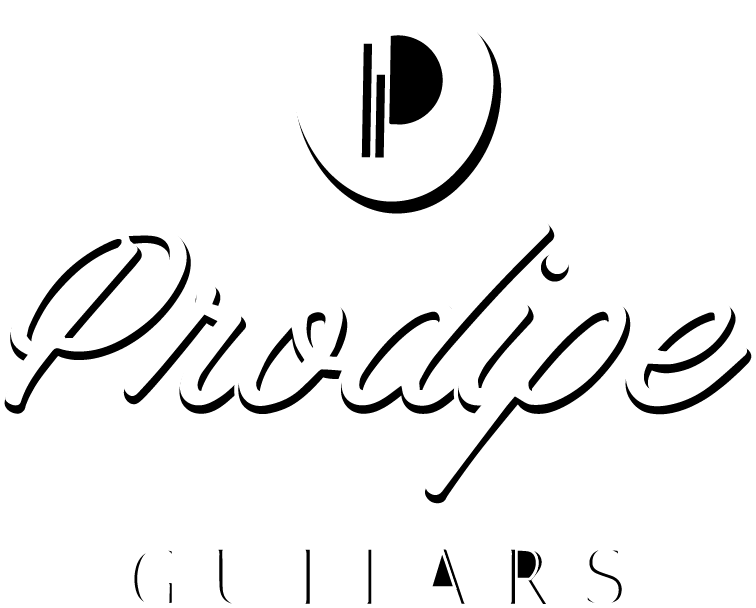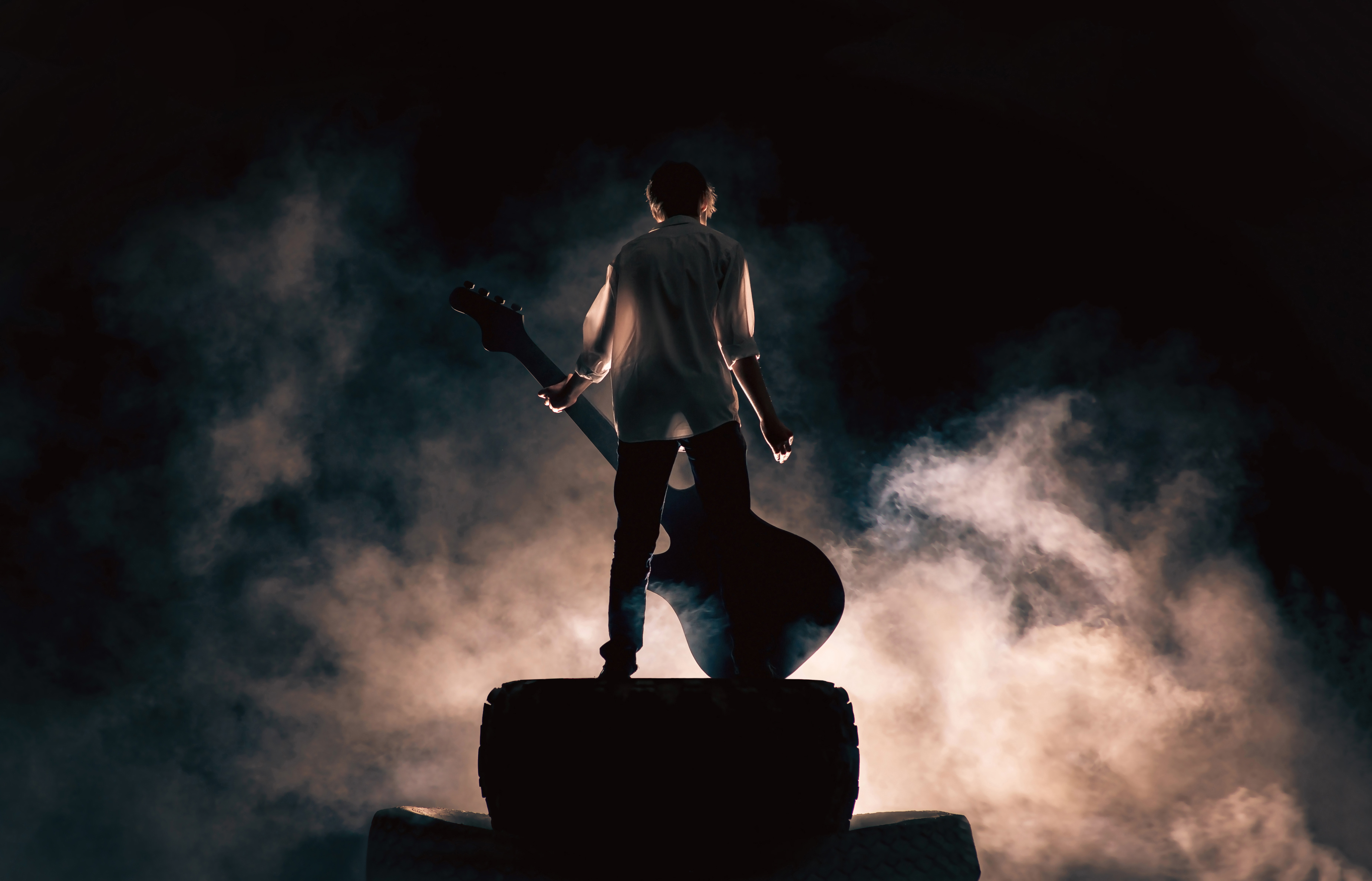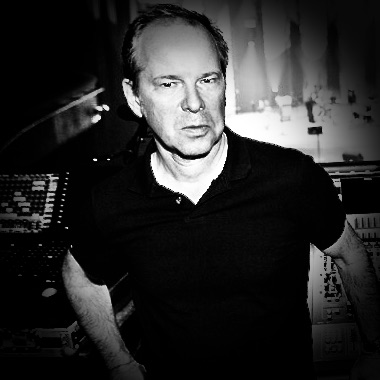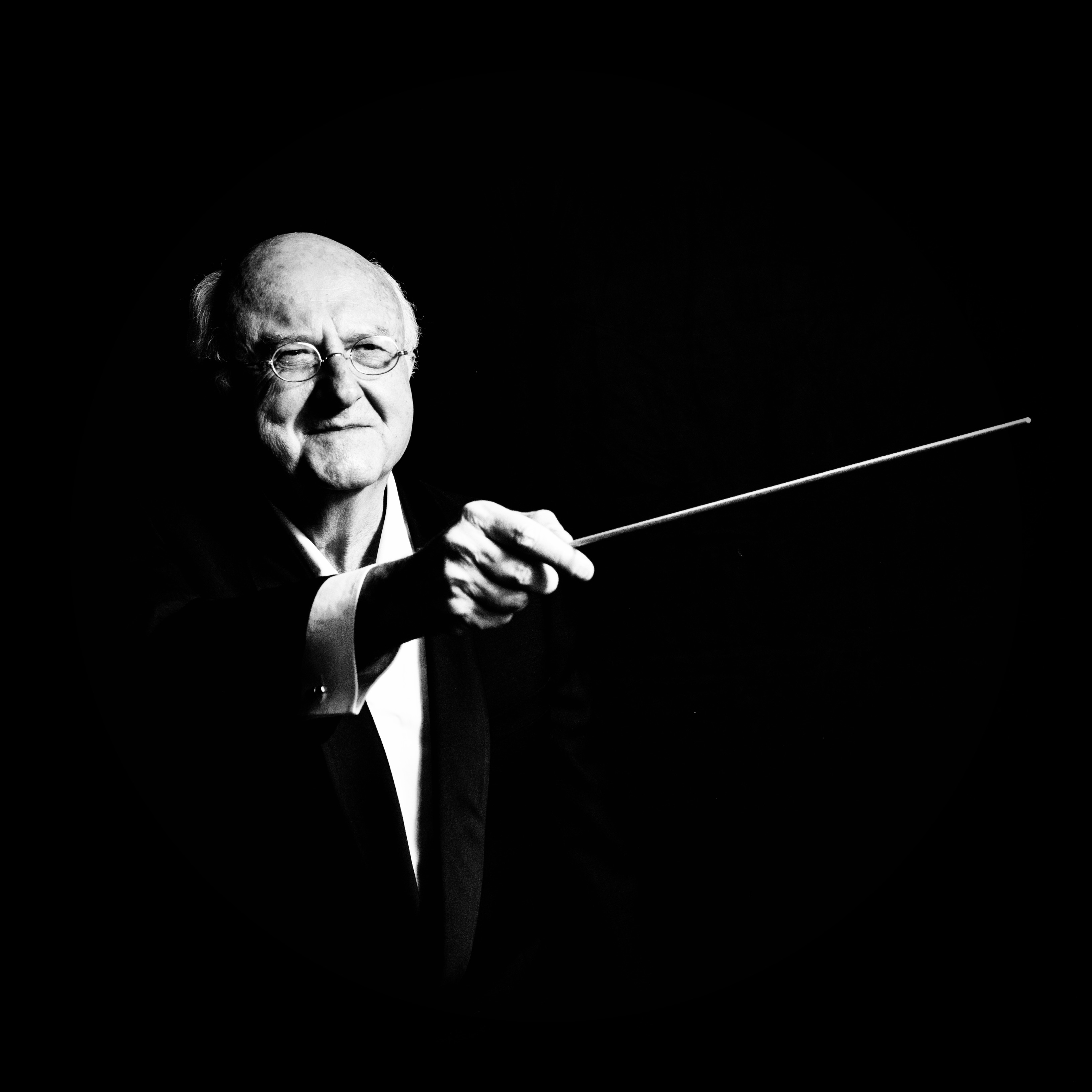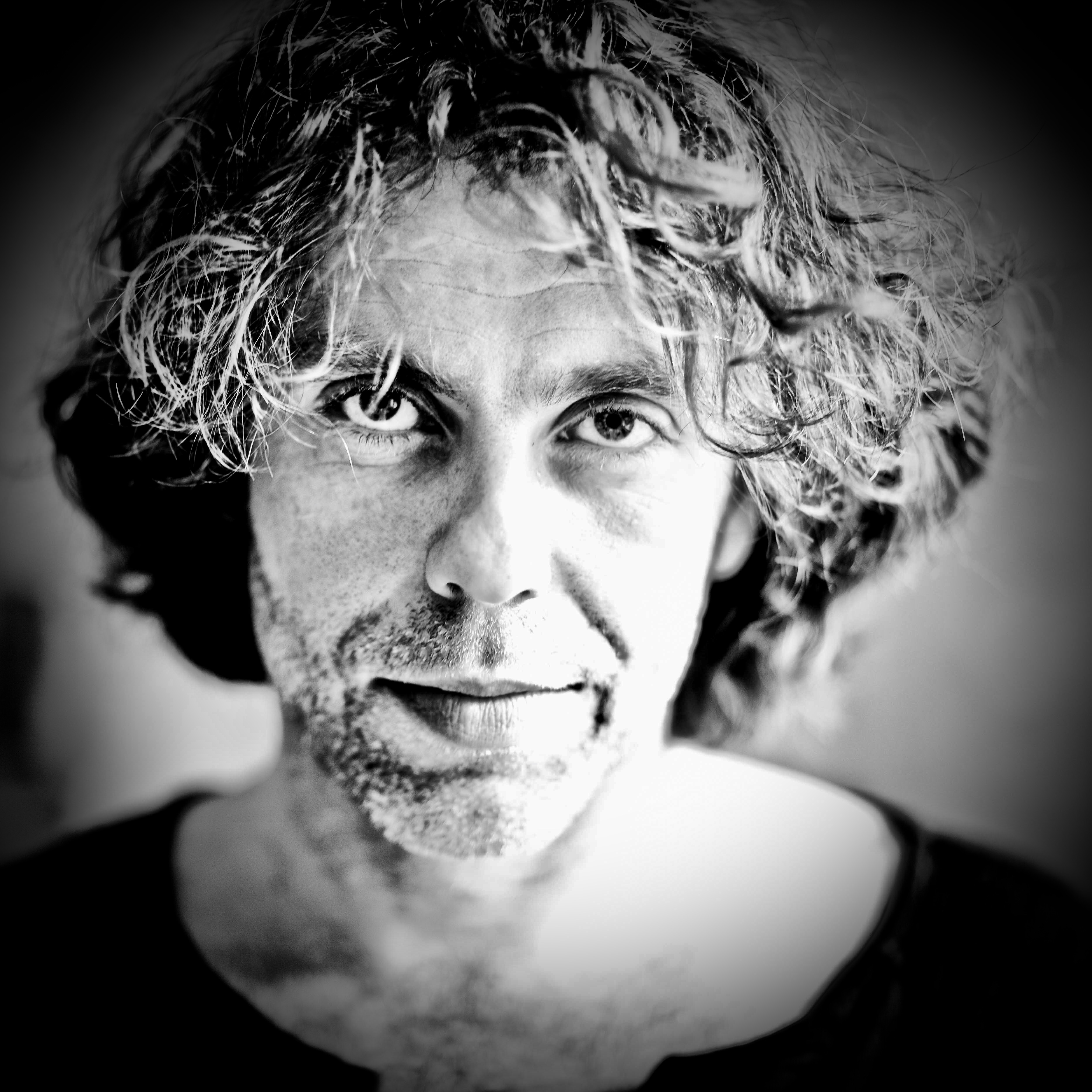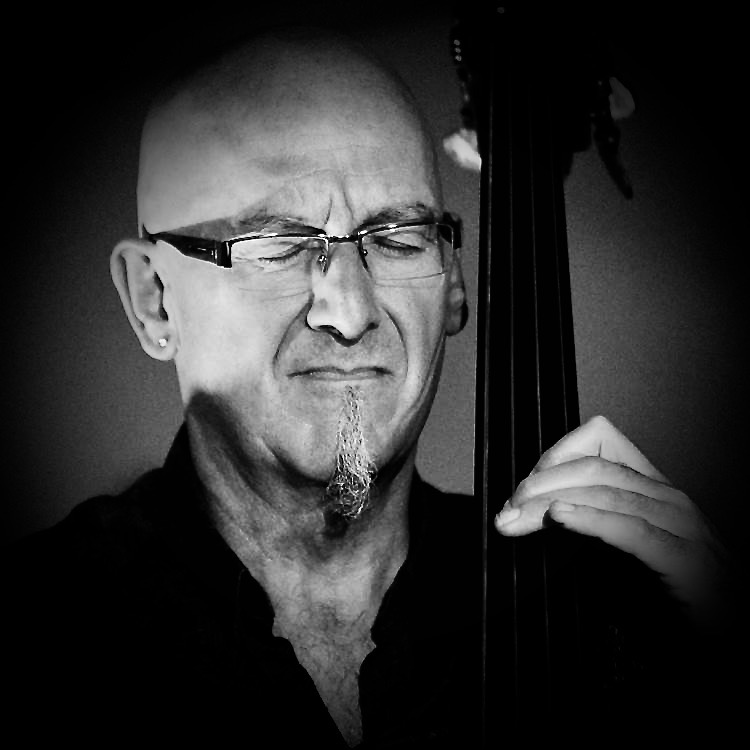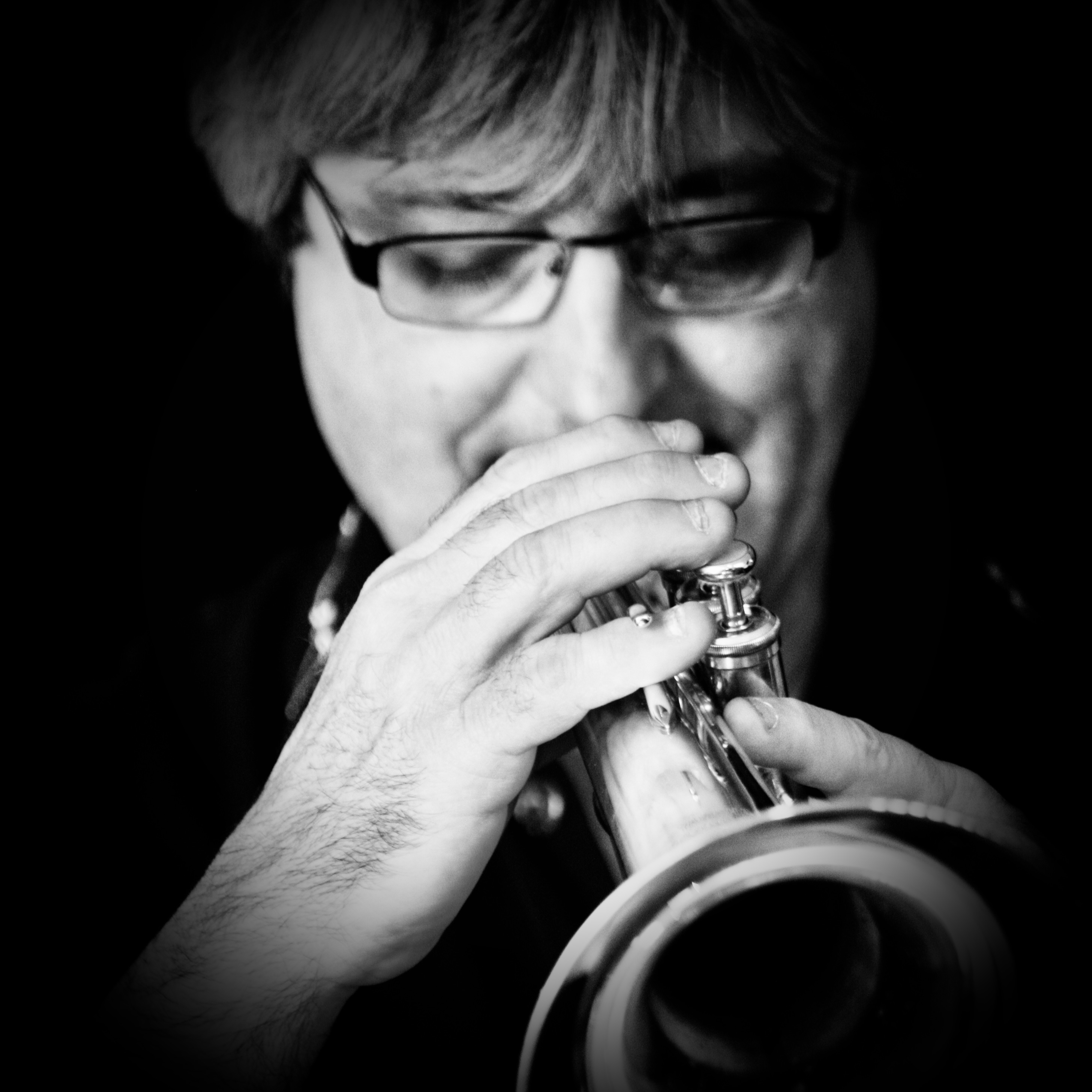Composer and bass player, Yves Rousseau has forged himself a musical identity finding his inspiration from Johann Sebastian Bach’s architecture to Louis Armstrong’s swing, Léo Ferré’s voice, or even Django Reinhardt, Franz Schubert or Pink Floyd.
Composer and bass player, Yves Rousseau has forged himself a musical identity finding his inspiration from Johann Sebastian Bach’s architecture to Louis Armstrong’s swing, Léo Ferré’s voice, or even Django Reinhardt, Franz Schubert or Pink Floyd.
The « Continuum » duo was born in 2017 with Jean-Marc Larché’s alto and soprano saxophones. the two musicians know each other very well and, with this duo, they give life to a real artistic convergency.
2019 will see the creation of a new ensemble called « Fragments » for a new repertory based on memories of the so prolific period made alive in the seventies by great pop/rock groups. This programme will not include any revivals but will be largely inspired by those times.
Composer and bass player, Yves Rousseau has forged himself a musical identity finding his inspiration from Johann Sebastian Bach’s architecture to Louis Armstrong’s swing, Léo Ferré’s voice, or even Django Reinhardt, Franz Schubert or Pink Floyd.
He discovers the double bass listening to Pierre Michelot and Patrice Caratini and will study the instrument with Jacques Cazauran at the CNR of Versailles between 1982 and 1987. In the meantime, he leads many experiences in orchestres de chambre and symphonique and makes some incursions in baroque music, contemporary and electro-acoustic.His experience as a composer is firstly connected to his player career. He writes his first notes in 1988 and more and more regularly for groups he plays with, often on the edge of Jazz and improvised music. His writing combines many genres as, jazz for instance, but also Jacques Tati’s universe, young public, Eastern Europe, North Africa…
Composition getting an important place, his career as a musician initiates a new period in 2000 when he founds his first band with Christophe Marguet (drums), Jean-Marc Marché (saxophone) and Régis Ruby (violin). This is the opportunity for Yves Rousseau to express his composer streak and to blend his musical influences with his wealth of experience as a player.
In 2000, he writes Fées et Gestes for his quartet, an album certified by Choc Jazzman and critically acclaimed, recorded at Hopi and rereleased at CC Productions / Harmonia Mundi in 2004.
In 2005, Sarsara, released at Le Chant de monde / Harmonia Mundi, is a Choc Musique album and receives an even warmer welcome. Yves Rousseau takes the listener to a world made of jazz, sophisticated music and including accents from worldwide. His passion for literature and poetry and his admiration for Léo Ferré lead him to a new project built around the poet’s world. Here, both Rousseau’s and Ferré’s works meet each other.
In 2007, Poète, vos Papiers ! is released at Le Chant du Monde / Harmonia Mundi and is, once again, a Choc Jazzman album.
This time, the voices of Jeanne Added and Claudia Solal come to join Rousseau’s quartet. In 2010, a second the second part of Poète… Vos Papiers ! is released, hosting Maria Laura Baccarini instead of Jeanne Added.
In 2009, he writes Yarin for the inauguration of the year of Turkey in Enghien-les-Bains, interpreted by Régis Huby (violin), Cyril Hernandez (percussions), Derya Türkan (kementché) and Kudsi Ergüner (ney) and himself on the double bass. This program is recreated in 2013 at the the Noirlac abbey with guitarist Pierre Durand and ney player Bilgin Canaz replacing Derya Türkan and Judsi Ergüner.
In 2012 comes Akasha, a program built around the evocation of the four elements and that combines at the same time music and images thanks to a collaboration with director Patrick Volve. This program is created the same year by his quartet. The album is released in December, 2014, at Le Chant du Monde / Harmonia Mundi.
In 2013, with the Wanderer Septet that gathers Régis Huby (violin), Jean-Marc Larché (saxophones), Pierre-François Roussillon (bass clarinet), Thierry Péala (singing, texts), Edouard Ferlé (piano), Xavier Desandre Navarre (percussions) and himself on the double bass, he undertakes the writing of an original repertoire based on a free re-reading of several extracts of works from Franz Schubert.
In 2015, he creates the quintet Spirit Dance, in pair with drummer Christophe Marguet, which also gathers Bruno Ruder (piano), Fabrice Martinez (trumpet and bugle), as well as David Chevallier (guitar).
Alongside, Yves Rousseau writes numerous pieces of music for duets, combining voice and double bass, percussions, and even dance!
Concerned with sharing his knowledge, Yves Rousseau is regularly invited to take part un the department of Jazz of the Conservatoire de Paris. His musical residences enable him to develop simultaneously a work of diffusion and creation of his artistic work, as well as a teaching part. The Festival Jazz sous les Pommiers in Coutances is the first one to invite him, then follow the city of Nangis in Seine et Marne, the Centre des Arts d’Enghien-les-Bains, the Théâtre 71 in Malakoff, SMACs the Triton (les Lilas), the Usine à Chapeaux in Rambouillet, and the Barbacane in Beynes for a new artistic residence in September 2017.
In 2014, his program Yarin is covered by the Conservatoire of Bourges under the name of Yarin Symphonique. In June 2014, following a request from the Théâtre 71, the Conservatoire Intercommunal de Malakoff creates a play called Mirages in the framework of the Fête de la Musique. Specially designed for amateur practices, Yves Rousseau structures his play in repetitive cells for an orchestra that summons all the formations of the Conservatoire, and even local associations.
D’Amour et de Folie completes his catalogue with the writing of a new repertoire for mixed choir and soprano saxophone, around poetess Louise Labé’s sonnets.
In 2016, he creates a new, more acoustic quintet, for a program called « murmures », entirely original, around poetic texts from François Cheng.

